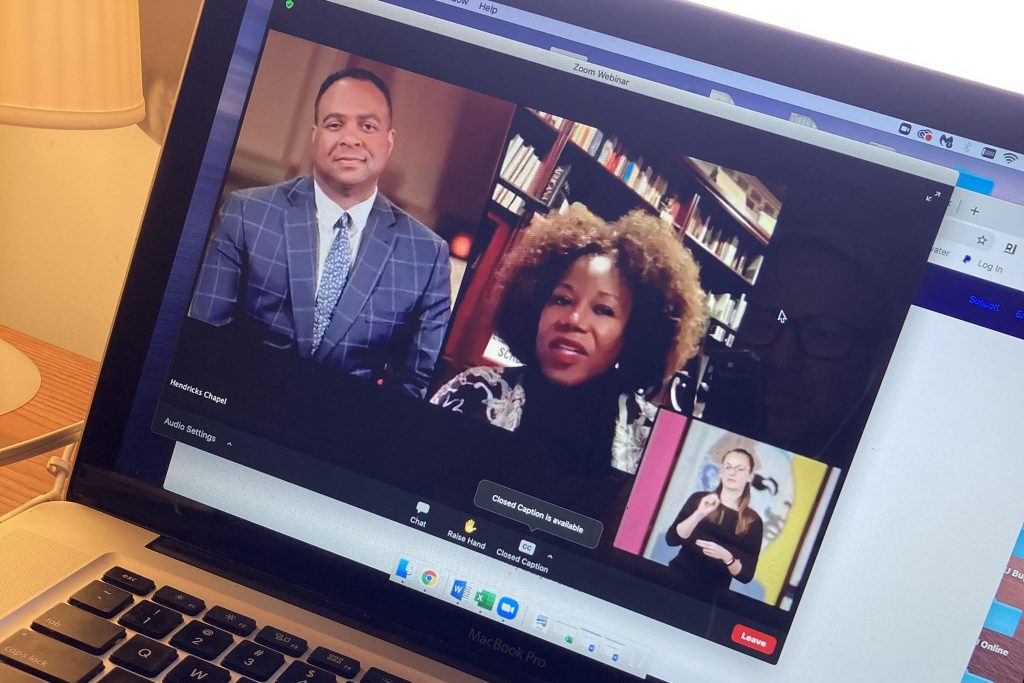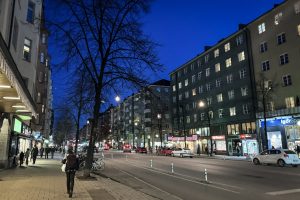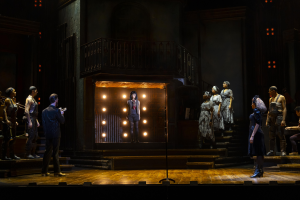SU’s virtual MLK Celebration features Ruby Bridges
SU's virtual MLK Celebration features Ruby Bridges

When Ruby Bridges took her first steps into an all-white elementary school in New Orleans in 1960 at just 6 years old, she did not yet understand she would be a part of a much larger civil rights movement.
“Ruby, walk straight ahead and don’t look back,” Bridges recalled a U.S. marshal saying to her as he escorted her into the school building surrounded by mobs of shouting people.
Bridges, a civil rights activist and author, recalled her experience as just one member of a small group of African-American students to integrate schools in the South during the 36th annual Martin Luther King Jr. celebration at Syracuse University.
We are so honored to have Ruby Bridges speak at the 2021 #MLK Celebration!
Thanks to all who joined 🧡 https://t.co/GFmU1J5dLV
— Syracuse University (@SyracuseU) February 1, 2021
In celebration of activists like Bridges and Martin Luther King, SU’s virtual celebration featured dance and musical performances, spoken poetry, an invocation by Brian Konkol, dean of Hendricks Chapel and the recognition of this year’s Unsung Hero award recipients.
As Bridges’ recalled her first year at William Frantz Elementary School, she said her integration was met with opposition, whether it be parents pulling their children out of school or crowds carrying a coffin with a Black baby doll inside. She said she found peace through her relationship with her teacher, Mrs. Henry, and her faith.
Bridges said Henry made her feel safe and welcomed her as a student in her classroom. She said this relationship made her realize that Henry, a white woman, was not the same as the white people shouting at her in the crowds outside.
“At six years old I learned the lesson that Dr. King tried to teach all of us,” Bridges said, “and that is that you cannot look at a person and judge them by the color of their skin but by the content of their character and I learned that lesson at six from Mrs. Henry, who was a white woman, who really made me feel safe in that empty school building that entire year.”
When she felt alone and afraid, Bridges said her mom instilled in her the power of prayer. Bridges said she would pray often before and after school.
“We have to believe in something bigger than ourselves,” she said. “Even as a very young child I always believed in my prayers and felt like it would protect me.”
Bridges said her memories of feeling lonely in an empty school building has fueled her dedication to work with children.
She said racism is something that is “passed on from generation to generation” and that young children must be taught that “racism has no place in their hearts and in their minds.”
Chancellor Kent Syverud urged students to follow King’s legacy and remain “impatient,” referencing King’s wisdom that “time and patience does not solve racism and inequality.”
Bridges said, though there is work that still needs to be done, she was happy to see diverse groups of young people take to the streets all over the world to speak out against injustice. She said her advice to those who might feel hopeless or frustrated would be to think about the struggles her ancestors had to endure.
“We have to remain hopeful, whether we see the fruits of our labor or not,” she said. “You talk about Dr. King, look at his sacrifices. He didn’t give up. He had to be afraid for himself every time he went out. He had to be afraid for his family, but he still continued on.”





